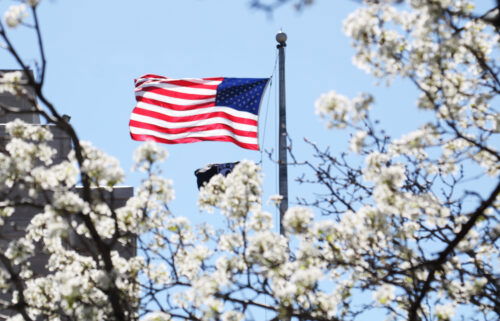FAFSA pushback creates additional stress for students, schools

By Jazmine Knight
Normally the Free Application for Federal Student Aid opens Oct. 1. However, for the 2024-25 period, students had to wait almost three months for it to open on Dec. 30, causing issues for students and financial aid departments.
According to the Department of Education, it computed about 3 million submitted applications by the end of January. But this is nothing compared to the 12 million applications submitted by the same time last year.
Charles Mayfield, director of financial assistance at Northwest Missouri State University said there hasn’t been a time in years past where FAFSA opened at a later date.
Typically schools can use FAFSA data starting just a day or two after it opens. But this year, colleges don’t have access, as data is still being processed. According to Mayfield, the Department of Education told him that the data won’t begin to be processed until the beginning of March.
The FAFSA pushback is most concerning for incoming freshmen because for some, their financial aid package influences the college they attend in the fall.
“Right away, we’ve lost a lot of time that students would typically be submitting those FAFSAs. So I feel like right away we’re already behind by a couple of months,” said Megan McCamy, college and career counselor at Central High School.
She said that typically students have a full picture of their financial aid situation from every university way ahead of the May 1 National Decision Day. However, this year, students and counselors are unsure.
“We just don’t know this year yet when they’re going to have that information,” she said. “We have some that definitely have applied to multiple universities and they’re literally waiting. They’ve been accepted and they’re just in a holding pattern until they get that financial information back.”
She said she has seen this situation impact students’ stress levels.
“Senior year is already stressful enough and now it’s like one more thing added on,” McCamy said.
To combat this issue, Mayfield said colleges have been flexible.
“For example, we typically encourage students to file by Feb. 1. We’ve pushed that back to April 1,” Mayfield said.
They’ve also pushed back the deadline for institutional scholarships for current students.
For financial aid departments, the pushback can make things more stressful. Normally, Northwest creates financial aid packages for the upcoming fall semester in December. They use March and April to configure aid packages for the summer term. However, things are different this year.
“We’re going to have to package students for next year and also be working on things for this current summer term at the same time,” Mayfield said.
Mayfield can only hope this pushback doesn’t occur in the future.
“I couldn’t have imagined we’d be in the situation we’re in right now. It seems like everything that could go wrong has gone wrong,” he said.
He explains how the pushback only added tension for students who were already worried about the application.
“One of those examples is if they have a parent who doesn’t have a Social Security number, there hasn’t been a way for them to file successfully,” he said.
Mayfield mentioned how a Department of Education webpage listed showed several known issues, many of which were unresolved, which affects the file layout for institutions across the country which ultimately delays how quickly they can get financial aid to their students.
“So things are definitely changing along the way, it seems like on a weekly or almost daily basis. We’ve all probably heard the old analogy, you build the plane while you fly it and it definitely feels like that’s what we’re doing,” Mayfield said.
“We’re figuring things out as we go and we’re reacting to what the Department of Education has given us as best we can.”
McCamy advises students to remain patient when it comes to their financial aid packages.
“All of us are working together with the new process. But patience is like a big part of it,” she said.
She emphasizes how crucial it is to receive assistance if students or parents have questions about the application. She mentioned events such as FAFSA nights to help students navigate the process.
Mayfield encourages students who still haven’t filled out their application “to keep working at it.”
“Hopefully, over time we can build trust in the new process and it’ll be the new normal and families will expect it to be easier, fewer questions, less time consuming,” Mayfield said.




